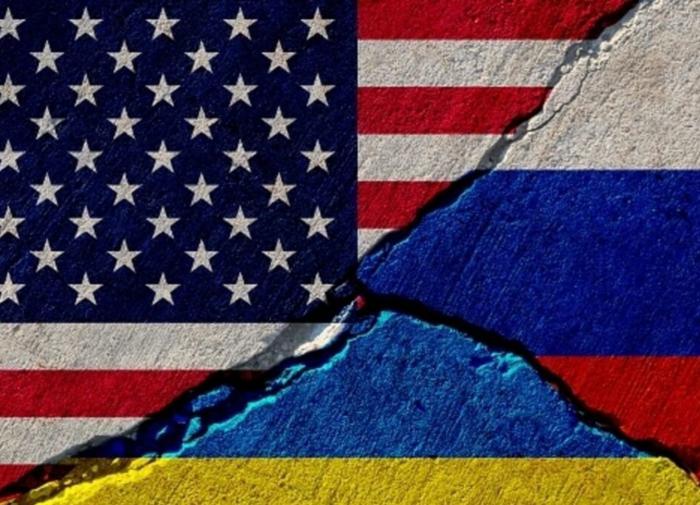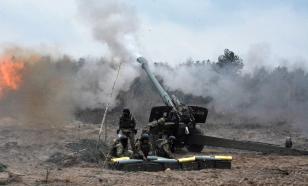What will the world be like after Russia's operation in Ukraine?
Today's global trends of further evolution of the world are developing under the influence of geopolitical forces opposing each other.

Until February 24, 2022, the international situation around Ukraine could be figuratively compared with the positional defense of the times of the First World War. Both Russia and the West were getting ready to break the positional impasse. It was only a matter of who would take the first decisive step.
Many experts in the field of international relations attribute the outbreak of hostilities to the failures of Moscow's policy in the Ukrainian direction.
Attempts to negotiate with Kiev and persuade it to implement the Minsk agreements were unsuccessful. Due to the military preparations of Ukraine to seize the Donetsk and Luhansk People's Republics, further negotiations lost their meaning.
The Russian operation in Ukraine is only a visible part of the global geopolitical confrontation between Moscow and the West. The very existence of Russian statehood is at stake. Despite this, the risks of the conflicting parties are no less.
It is not the consolidated West, but the United States and Great Britain that we consider to be Russia's adversary, because their interests are radically different.
Position of Russia
Russia's objectives in Ukraine are its demilitarization and denazification. This is only possible after the transfer of the liberated territories to a friendly government independent of the West. Such a government is still to be formed.
Russia's global objective is far more ambitious. It consists in changing the unipolar world order established by the US and its allies.
Preparations for a special military operation were not without miscalculations. The authorities have underestimated both the moral and psychological state of the armed forces and the population of Ukraine. They also underestimated the consequences of international sanctions pressure.
Possible risks for Russia are:
- Delaying the duration of the operation;
- A decrease in the standard of living of the Russian population and the level of support by the Russians for the ongoing operation.
Position of Ukraine
When evaluating the position of Ukraine, it is necessary to understand the lack of political subjectivity in it at the time of the start of the operation. Therefore, the interests of the Kyiv authorities proceed from his understanding of the inevitable military defeat. That is why extracting personal preferences is important for Zelensky.
The objectives of the Kyiv authorities are:
- Internationalization of hostilities by involving NATO and EU countries in them;
- Dragging out the military conflict, giving it the character of popular resistance, guerrilla warfare, sabotage and terrorist actions;
- Obtaining from the US and the EU guarantees of security and a decent life for individual members of the elite after the active phase of the conflict is over.
Kyiv's miscalculations include the erroneous bet on the participation of representatives of the United States, Great Britain and the European Union in hostilities. And they also reassessed their operational-tactical defense capabilities.
Due to the narrow interests of the Kyiv leadership, the main risk lies in the inability of American and European partners to guarantee security and a decent life in emigration.
Position of the USA and Great Britain
The objectives of the Anglo-Saxons in Ukraine are to prolong the hostilities and inflict the maximum possible damage on the Russian troops.
Their global objectives are:
- Restoration of a unipolar world order based on Anglo-Saxon political and economic domination;
- The deprivation of Germany and France of their leading roles in Europe;
- The destruction of Russian statehood due to the destabilization of the internal political situation in Russia and the unleashing of a civil war.
The USA's and UK's miscalculations were:
- Wrong bet on the Russian financial and economic elite;
- Underestimation of Russia's operational-tactical capabilities;
- Erroneous forecasts for oil supplies from Iran, Venezuela and Saudi Arabia.
From these miscalculations come the likely negative consequences such as:
- A sharp rise in energy and food prices; weakening US influence on allies in Europe and Asia;
- The growth of social tension in the United States, where the preconditions for the defeat of the Democrats in the November elections are created;
- Strengthening of internal political and social contradictions in the USA up to the civil war.
Position of Europe
There is no single European position on the situation in Ukraine. The interests of European states are divided.
The elites of Germany and France are using the conflict in Ukraine in order to increase their ratings and gain advantages over the voters.
Poland seeks to establish its protectorate over the Lviv, Ivano-Frankivsk and Ternopil regions. Hungary wants to establish influence over the Zakarpattia region. Romania wants to influence part of the Odessa region.
The EU miscalculations were:
- Underestimation of the Russian military potential;
- Incorrect prediction of the economic and humanitarian consequences of the conflict.
Regardless of the outcome of the conflict in Ukraine, the EU is the most vulnerable side to its consequences. These include:
- sharp rise in prices for energy carriers and foodstuffs;
- migration crisis due to the influx of refugees and the aggravation of the crime situation caused by it;
- growth of social tension;
- the change of ruling elites in a number of European countries due to the dissatisfaction of the population with their activities;
- strengthening of contradictions between EU member states;
- withdrawal from the EU of some member countries that disagree with a single sanctions and migration policy.
In conclusion:
The US and UK will continue to consistently support controlled chaos in Eurasian states.
The most likely territory for the next military conflict is the Taiwan Strait zone. India's border clashes with China and Pakistan are possible.
In the next few months, the confrontation between Russia and the West will acquire the nature of a positional political and economic war. Whoever gives up first will lose.
Our estimates of the situation are generally optimistic.
Russia's future will be difficult, but not fatal.
A revolutionary scenario in Russia is extremely unlikely. The people and businesses of Europe will capitulate first. This will be influenced by a sharp rise in food and energy prices, which will force them to make concessions in return. Companies that have suspended doing business in our country will return to its market. If only the vacated niche will not be occupied by others.
In order to achieve its goals, Russia needs to successfully complete the operation in Ukraine. It is also necessary to work on mistakes in matters of domestic policy, migration, and support for compatriots abroad.
Moscow's foreign policy deserves a radical overhaul in relation to the post-Soviet states.
It is only under these conditions that Russia will be able to transform a military victory into a political success and take a worthy place in the world of the future.
Subscribe to Pravda.Ru Telegram channel, Facebook, RSS!


